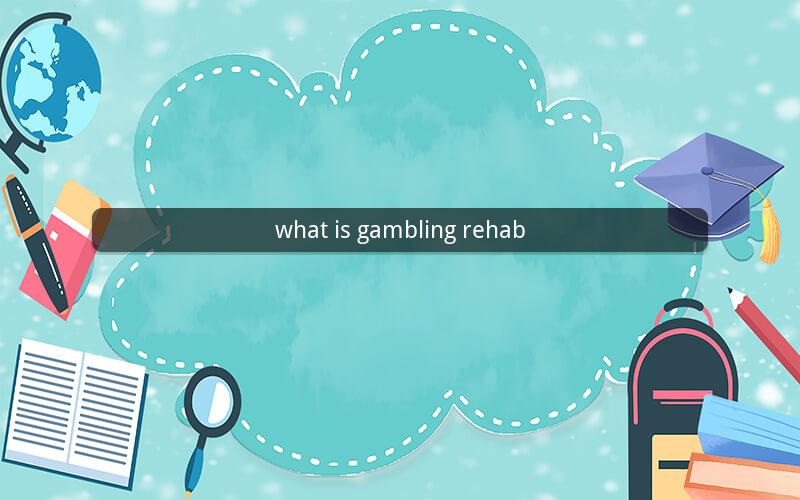
What is Gambling Rehab?
Table of Contents
1. Introduction to Gambling Addiction
2. The Need for Gambling Rehab
3. Understanding the Gambling Rehab Process
4. Types of Gambling Rehabs
5. The Role of Therapy in Gambling Rehab
6. Support Systems in Gambling Rehab
7. The Benefits of Attending a Gambling Rehab
8. The Challenges of Gambling Rehab
9. The Importance of Aftercare
10. Conclusion
1. Introduction to Gambling Addiction
Gambling addiction, also known as problem gambling, is a behavioral disorder characterized by an individual's inability to control their gambling behavior. This condition can lead to severe financial, social, and psychological consequences. Understanding the nature of gambling addiction is crucial in addressing the issue and seeking appropriate treatment.
2. The Need for Gambling Rehab
Gambling rehab is designed to help individuals struggling with gambling addiction. It provides a structured environment that allows individuals to address their addiction and develop strategies to maintain sobriety. The need for gambling rehab arises from the fact that problem gambling can be difficult to overcome without professional help.
3. Understanding the Gambling Rehab Process
The gambling rehab process typically involves several stages, including assessment, treatment planning, therapy, and aftercare. Each stage is tailored to the individual's specific needs and circumstances.
4. Types of Gambling Rehabs
There are various types of gambling rehabs available, including inpatient, outpatient, and residential programs. Each type offers different levels of support and flexibility, depending on the individual's needs.
5. The Role of Therapy in Gambling Rehab
Therapy plays a crucial role in gambling rehab. It helps individuals understand the underlying causes of their addiction, develop coping skills, and learn how to manage triggers. Common therapeutic approaches include cognitive-behavioral therapy (CBT), dialectical behavior therapy (DBT), and family therapy.
6. Support Systems in Gambling Rehab
Support systems are an essential component of gambling rehab. They provide individuals with the necessary tools and resources to maintain sobriety after completing the program. Support systems can include support groups, counseling, and 12-step programs.
7. The Benefits of Attending a Gambling Rehab
Attending a gambling rehab can have numerous benefits, including:
- Improved financial stability
- Enhanced relationships
- Increased self-esteem
- Reduced stress and anxiety
- Development of healthier habits
8. The Challenges of Gambling Rehab
While gambling rehab can be highly effective, it also comes with challenges. Some individuals may struggle with the idea of seeking help, fear of judgment, or relapse. It is important to acknowledge these challenges and address them through therapy and support.
9. The Importance of Aftercare
Aftercare is a critical component of gambling rehab. It helps individuals maintain their sobriety by providing ongoing support and resources. Aftercare can include follow-up therapy sessions, support group meetings, and life coaching.
10. Conclusion
Gambling rehab is a vital resource for individuals struggling with gambling addiction. By addressing the underlying causes of addiction, individuals can develop the skills and support systems necessary to maintain a healthy and fulfilling life.
Questions and Answers
1. What is the main goal of gambling rehab?
- The main goal of gambling rehab is to help individuals overcome their addiction and develop strategies to maintain sobriety.
2. Can gambling rehab be effective for everyone?
- While gambling rehab can be effective for many individuals, the success rate may vary depending on the individual's circumstances and commitment to the process.
3. What are some common triggers for gambling addiction?
- Common triggers for gambling addiction include financial stress, social pressure, and emotional distress.
4. How long does a typical gambling rehab program last?
- The duration of a gambling rehab program can vary, ranging from a few weeks to several months.
5. What is the difference between inpatient and outpatient rehab?
- Inpatient rehab involves living at the facility during treatment, while outpatient rehab allows individuals to live at home and attend therapy sessions during the day.
6. Can family therapy be beneficial in gambling rehab?
- Yes, family therapy can be highly beneficial in gambling rehab by addressing the impact of addiction on relationships and improving communication.
7. What are some signs that someone may have a gambling addiction?
- Signs of gambling addiction include secretive behavior, financial problems, missed work or school, and increased social isolation.
8. How can support groups help in gambling rehab?
- Support groups provide individuals with a sense of community, share experiences, and offer encouragement and advice.
9. What role does medication play in gambling rehab?
- While medication is not a primary treatment for gambling addiction, it may be used to address co-occurring conditions such as depression or anxiety.
10. How can individuals maintain sobriety after completing a gambling rehab program?
- Maintaining sobriety after completing a gambling rehab program involves ongoing therapy, support from family and friends, and the development of healthy coping mechanisms.